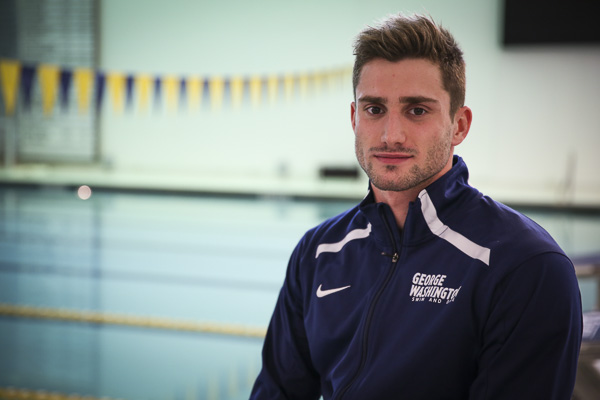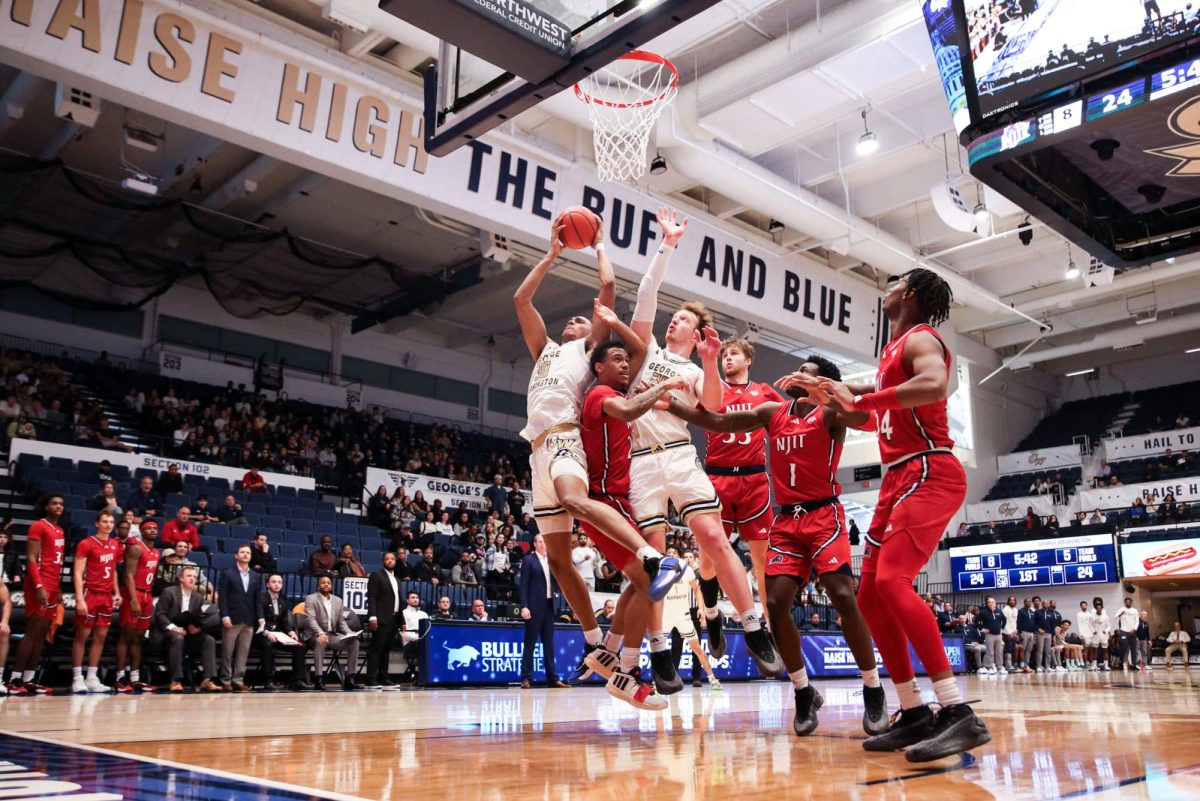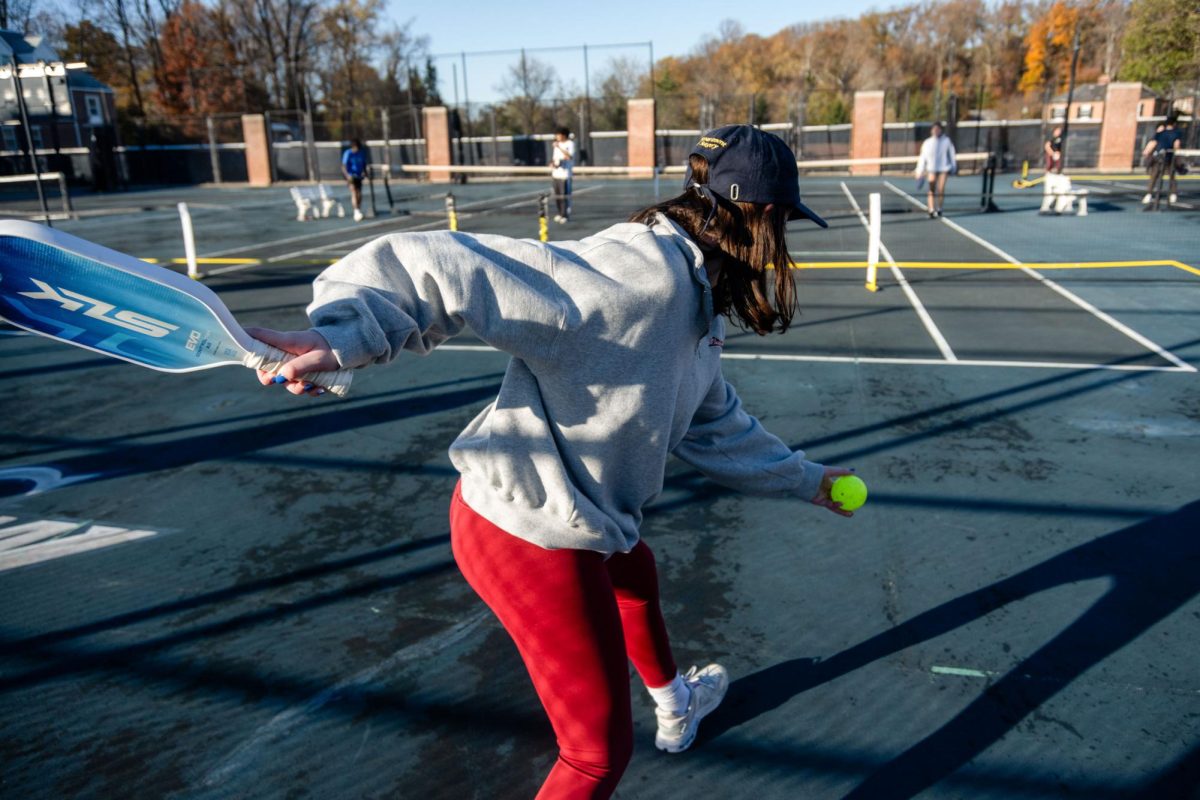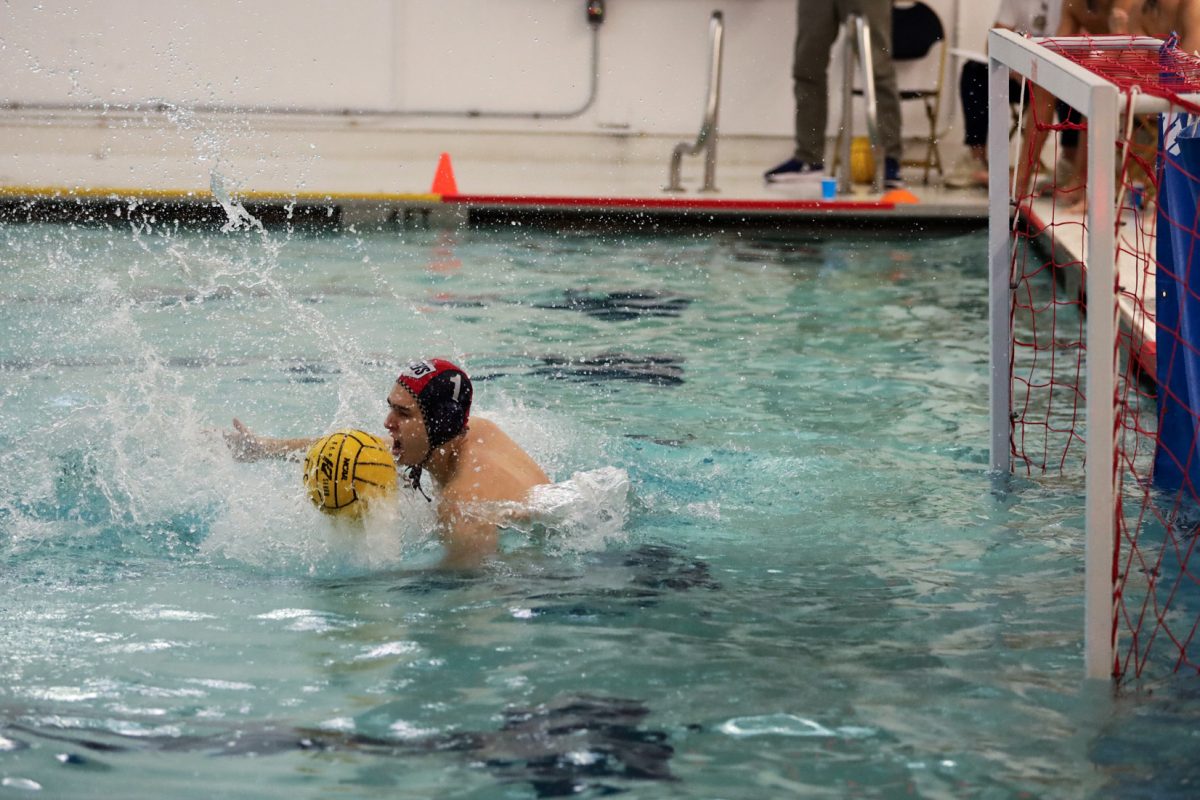Updated: March 21, 2018 at 1:08 p.m.
At the NCAA championship last month, junior swimmer Andrea Bolognesi, the first participant in the national competition from GW since 2001, became the first All-American in men’s swimming and diving program history.
“Most of those athletes are likely to represent their own country at the Olympics this coming summer, so for me it was exciting to compete in such a great environment,” Bolognesi said. “Already being there was a success.”
The journey there for the 22-year-old phenom was a long one. Six years ago, after a decorated high school career, Bolognesi was unsure whether he’d ever swim competitively again.
But through an extraordinary work ethic, unflinching humility and help along the way from his family, teammates and coaches, Bolognesi is back in the pool and performing better than ever this year – his first at GW.
“Above all else, [Andrea] is very humble, and his teammates definitely recognize that,” head coach James Winchester said in a press conference on March 23. “Sometimes you might have the prima donna here or there when you have someone this talented, but really with Andrea and his humbleness and willingness to work hard, he deserves all the success he’s gotten.”
By age 15, the 5-foot-11-inch Cuveglio, Italy native had already medaled at the Italian Championships in the 100m butterfly. Competing with his Italian club team throughout his teens, Bolognesi picked up dozens medals.
His specialty is short distance, with an affinity for the 100-yard IM, a race only swum in Europe. With a muscular, shorter frame, he has always considered himself a sprinter in the water.
But in November 2010, after moving from his parents’ home to join a new club team for his final year of high school, Bolognesi began suffering from shoulder pain.
The year prior, Bolognesi had come up just short of qualifying for the European Junior Championship. With a World Junior Championship and a shot at redemption on the horizon, he practiced harder than he ever had, which Bolognesi said may have contributed to the eventually sidelining injury.
“That was a long, long injury. I visited a lot of doctors but none were able to give me a clear evaluation of my problem, and I was also asked to eventually consider the option of quitting,” Bolognesi said. “That period was the worst one of my life since saw all the hard work I had done before to get to that level destroyed.”
Shoulder surgery, however, saved Bolognesi’s career, he said. Not long after the procedure, he applied to the International University of Monaco in 2012. The pre-arts and sciences major, who hopes to specialize in international trade and macroeconomics consulting, said that even during his time in Monaco, he had always wanted to study at an English-speaking university.
Bolognesi started the arduous process of recruitment to an American university two years later. He said it was difficult learning about schools just online – his focus was primarily on academics but still had swimming in the back of his mind.
Through a friend’s recruiting agent, a handful of universities saw his potential as an athlete, including GW. Winchester contacted him, and after a few Skype sessions, Bolognesi was impressed by the first-year head coach’s motivation, sacrifice and ambition.
“[Coach Winchester] has been far from his wife and daughters and has had to set a brand new program culture, with new rules, traditions and requirements,” Bolognesi said. “All these big changes can easily make a person somehow lose the focus on everything that a head coach should have – but that’s not the case with James. He has always worked professionally and, most of all, with passion, motivating us to do better when the things were going well but still supporting us when they weren’t.”
Apart from working with a new coach, Bolognesi said the other biggest adjustment to swimming in America was the team aspect. While in Europe, the sport is much more individual, he said that the U.S. training is more team-oriented.
Sharing movies and meals on campus with teammates are added perks to the support they provide Bolognesi in the pool. Without them, he said, his accomplishments at the NCAA championships, which included a school record 100-breast time of 52.06 seconds during the preliminary session and an eighth-place overall finish in the finals, would not have been possible.
“[My teammates were] motivating each other, me included, in every single practice and hard exercise,” Bolognesi said. “The environment in which I swam this is year was the most united of those in which I have ever practiced. They sincerely made the difference by making me willing to give my 100 percent every day.”
With his senior year on the horizon, Bolognesi said he wants to improve his times across all races next year, with his sights set on becoming one of the top three swimmers in the nation for the 100 breast.
Although Bolognesi’s long journey has culminated in success 4,000-plus miles away from home, he’ll always remember how his humble beginnings and the unwavering support of his family got him there.
“The path that brought me here was difficult, exhausting, and full of disappointments and hard times, but [my parents] didn’t give up on me, even when I did,” Bolognesi said. “That’s probably the most important lesson they taught me and will be critical at any point of my life.”
This post was updated to reflect the following correction:
The Hatchet incorrectly reported the year GW last had a participant in the NCAA Championships. It is now correct. We regret this error.







